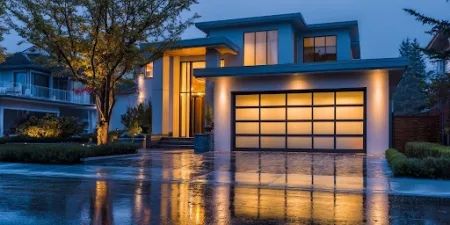The rise of short-term rentals has caused a significant shift in the real estate market in recent years. This emerging trend, pioneered by platforms such as Airbnb and VRBO, has revolutionized how people travel and has profoundly impacted the traditional hospitality industry. As travelers increasingly seek unique and personalized experiences, short-term rentals have emerged as a popular alternative to conventional hotels, and this has not gone unnoticed in the real estate sector.
Short-term rentals have emerged as a popular and more affordable alternative to traditional long-term leases and hotels, reshaping the way people see and use real estate properties. In this article, we will talk about the rise of short-term rentals as a game changer for the real estate market.
The Transformative Impact of Short-Term Rentals on the Real Estate Market

Here are some of the ways short-term rentals have changed the real estate market:
1. Increased Rental Demand
The demand for rental properties has dramatically increased due to short-term rentals. Travelers, tourists, and business professionals now have more options besides traditional hotels, enabling them to explore a destination from the locals’ viewpoint. The number of homes available for rent has expanded as a result of the increased demand, which has given investors and property owners a chance to make real estate passive income by renting out their properties for the short term.
According to a recent study by eXp Realty, the demand for remote work and virtual home buying experiences has significantly increased in the real estate market.
2. Property Value Appreciation
The demand for properties suitable for short-term rentals has fueled property value appreciation in many popular tourist destinations. Owners who convert their properties into short-term rentals often invest in renovations, upgrades, and stylish furnishings to attract guests.
This focus on aesthetics and functionality has inadvertently increased property values, as well-maintained and attractively furnished homes tend to command higher prices in the real estate market. With the high demand in the industry, you need professional help in techvestor to find a short-term rental property with excellent ROI potential.
3. Economic Boost for Local Communities
Short-term rentals have injected economic vitality into local communities. Travelers who opt for short-term rentals typically spend money on dining, shopping, and exploring local attractions, contributing to the growth of local businesses. This increased economic activity has a positive ripple effect, creating job opportunities, supporting local infrastructure development, and boosting the community’s overall economy.
4. Challenges for Traditional Rental Markets
Although short-term rentals offer many advantages, they have also caused challenges for traditional rental markets. It could be challenging for landlords who previously relied on long-term tenants to compete in the lucrative short-term renting market. Long-term tenants now have fewer options since some landlords have focused on short-term leases. In some regions, this may result in more rental competition and higher rents, making it more difficult for people and families to obtain affordable accommodation.
Factors Contributing to the Popularity of Short-Term Rentals
Here are some reasons why short-term rental investment and usage are increasingly becoming popular:
1. Flexibility and Personalization
The flexibility and customization that short-term rentals provide to travelers are one of the main elements contributing to their appeal. Short-term rentals, unlike traditional hotel rooms, offer various possibilities, including apartments, homes, villas, and unusual lodgings like treehouses or houseboats. This variety enables visitors to find a location that meets their unique requirements, whether a luxury getaway, a pet-friendly apartment, or a family-friendly home.
Additionally, short-term rentals provide you with more freedom regarding location and duration. Travelers can arrange their visits whenever they want because they can rent a house for a few days, a week, or even months. This flexibility also extends to the location, as short-term rentals can be found in various neighborhoods and areas that may not have traditional hotel options. This enables visitors to see a destination from a unique perspective and immerse themselves in local culture.
Moreover, short-term rentals enable guests to personalize their stay. They can cook their own meals, do laundry, and enjoy amenities such as private pools, gardens, or balconies. These features provide a sense of home away from home, offering comfort and convenience that may not be available in standard hotel rooms.
2. Value for Money and Cost-Effectiveness
The affordability and value for money that short-term rentals offer are two important aspects that contribute to their appeal. For families or larger groups, short-term rentals can often be a more cost-effective alternative to hotel accommodations. Travelers can save money by renting a single property that can accommodate everyone rather than making separate reservations at several hotels.
Additionally, short-term rentals frequently come with features like wholly furnished kitchens, enabling visitors to cook their own meals rather than eating out every meal. This can drastically lower food and beverage costs, particularly during extended visits. Additionally, the rental houses’ own laundry facilities minimize the need for pricey hotel laundry services.
Value for money is another attractive aspect of short-term rentals. Guests can enjoy spacious accommodations, separate living and sleeping areas, and the opportunity to live like a local, all at a competitive price. The additional space and amenities offered by short-term rentals enhance the overall experience, making it a preferred choice for travelers seeking value and comfort.
Furthermore, short-term rentals often provide additional cost savings through weekly or monthly discounts, especially during off-peak seasons. These discounts incentivize longer stays and can be particularly appealing for digital nomads, remote workers, or individuals seeking temporary housing solutions.
3. Local Experiences and Authenticity
The growing popularity of short-term rentals results from travelers’ quest for real travel experiences. Nowadays, many tourists aim to live like locals when they travel and immerse themselves in the culture. In order to experience a location’s proper rhythm, short-term rentals give visitors a chance to stay in local areas rather than popular tourist destinations.
Travelers can discover local markets, engage with locals, and learn about local culture by renting a short-term rental. The hosts or property owners frequently suggest neighboring attractions, unexplored gems, and local restaurants that may not be well-known to tourists. This local expertise may substantially improve the travel experience by allowing visitors to find off-the-beaten-path destinations and interact meaningfully with the locals.
4. Technological Advancements and an Easy Booking Process
The advancement of technology and the convenience of online booking platforms have played a significant role in the popularity of short-term rentals. Platforms like Airbnb, HomeAway, and VRBO have revolutionized how travelers search for and book accommodations.
The user-friendly interfaces of these platforms allow travelers to easily browse through a wide selection of properties, filtering based on their specific preferences, such as location, price range, amenities, and property type. Detailed property listings with comprehensive descriptions, high-quality photos, and guest reviews provide travelers with the necessary information to make informed decisions.
Moreover, the availability of instant booking options and real-time availability calendars eliminates the need for lengthy negotiation processes. Travelers can secure their desired rental property with just a few clicks, providing a seamless and efficient booking experience.
Conclusion
In conclusion, the rise of short-term rentals has undoubtedly been a game changer for the real estate market. With increased rental demand, property value appreciation, economic benefits for local communities, and a shift in traveler preferences, the short-term rental industry has reshaped the way properties are utilized and monetized. However, challenges such as regulatory concerns and strained community relations must be addressed to ensure a balanced and sustainable real estate market in the future.



